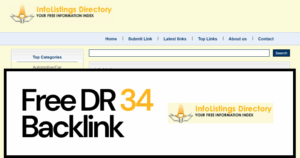Are you ready to take your content marketing strategy to the next level? In today’s digital landscape, search engine optimization (SEO) plays a crucial role in enhancing the visibility and reach of your content. By understanding the basics of SEO utilization, creating SEO-friendly content, and leveraging the right tools and strategies, you can significantly boost your content’s performance. From building high-quality backlinks to measuring and analyzing SEO performance, this comprehensive guide will equip you with the knowledge and techniques needed to make your content stand out in the crowded online space. Additionally, we’ll explore the importance of local SEO strategies, social media integration, and mobile optimization techniques to ensure that your content reaches and resonates with your target audience. As search engine algorithms continue to evolve, staying updated with the latest changes and trends is essential for maintaining a competitive edge. So, buckle up and get ready to harness the power of SEO to supercharge your content marketing efforts!
Understanding the Basics of SEO Utilization
One of the fundamental aspects of SEO utilization is conducting thorough keyword research. This involves identifying the most relevant and high-traffic keywords related to your content, which can significantly impact your search engine rankings and visibility. By understanding the search behavior of your target audience, you can strategically incorporate these keywords into your content to attract more organic traffic to your website.
On-page optimization techniques play a crucial role in SEO utilization. This includes optimizing various on-page elements such as meta titles, meta descriptions, headings, and content structure. By adhering to SEO best practices and guidelines, you can ensure that your content is not only valuable to your audience but also easily accessible and understandable by search engine crawlers, ultimately improving your content’s search engine ranking.
In addition to on-page optimization, off-page optimization strategies are equally important for effective SEO utilization. This involves building high-quality backlinks from reputable websites, engaging in social media marketing, and fostering relationships within your industry. By establishing a strong off-page SEO presence, you can enhance your content’s authority and credibility, making it more appealing to both search engines and users.
Creating SEO-Friendly Content
When creating content, it’s important to optimize meta tags and descriptions to make it more SEO-friendly. This includes using relevant keywords and providing a clear and concise description of the content. By doing so, you can improve the visibility of your content in search engine results, making it easier for your target audience to find and engage with.
In addition to meta tags and descriptions, it’s crucial to use relevant keywords naturally throughout the content. This not only helps search engines understand the topic of your content but also improves the user experience by providing valuable and relevant information. However, it’s important to avoid keyword stuffing, as this can negatively impact the quality and readability of your content.
Furthermore, incorporating multimedia such as images, videos, and infographics can enhance the engagement and shareability of your content. Search engines also favor multimedia-rich content, so including relevant and high-quality multimedia can further boost the SEO-friendliness of your content. By creating content that is both informative and visually appealing, you can attract more organic traffic and improve your overall content marketing strategy.
Utilizing SEO Tools for Content Marketing
Utilizing seo tools for content marketing involves analyzing website performance using platforms like Google Analytics. By examining user behavior, traffic sources, and on-site interactions, businesses can gain valuable insights into the effectiveness of their content and SEO strategies. This data can then be used to refine and optimize marketing efforts for better results.
Another crucial aspect of utilizing SEO tools is leveraging keyword research tools to identify relevant and high-traffic keywords for content optimization. By understanding the search intent of users and incorporating these keywords naturally into content, businesses can improve their search engine ranking and attract more organic traffic to their website.
In addition, implementing SEO plugins for content management systems can streamline the process of optimizing content for search engines. These plugins provide features such as meta tag optimization, XML sitemap generation, and link analysis, making it easier for businesses to ensure that their content is SEO-friendly and easily discoverable by search engines.
Building High-Quality Backlinks for SEO Enhancement
One effective way to enhance your SEO strategy is by building high-quality backlinks. This can be achieved through guest posting on relevant websites within your industry. By contributing valuable content to these websites, you can earn backlinks to your own site, increasing your site’s authority and visibility to search engines.
Another method to earn high-quality backlinks is by participating in industry-specific forums. By actively engaging in discussions and providing insightful comments, you can establish yourself as a thought leader in your industry, leading to opportunities for backlinks from forum discussions or profiles.
Additionally, content collaborations with other reputable websites can also help in earning backlinks. By partnering with other businesses or content creators, you can create valuable content together and earn backlinks in the process, further enhancing your site’s SEO performance.
Measuring and Analyzing SEO Performance
In order to effectively measure and analyze SEO performance, it is essential to track keyword ranking and organic traffic. By monitoring the keywords that drive the most traffic to your website and analyzing the changes in ranking over time, you can gain valuable insights into the effectiveness of your SEO efforts.
Furthermore, monitoring user engagement metrics such as bounce rate, time on page, and conversion rates can provide a comprehensive view of how well your content is resonating with your target audience. These metrics can help you identify areas for improvement and optimize your content to better meet the needs and preferences of your audience.
Finally, conducting regular SEO audits and making necessary adjustments is crucial for maintaining and improving SEO performance. By identifying and fixing technical issues, updating content to reflect changes in search algorithms, and staying abreast of industry best practices, you can ensure that your SEO efforts continue to yield positive results.
Implementing Local SEO Strategies
One of the key strategies for implementing local SEO is to optimize your Google My Business listing. This involves ensuring that all your business information is accurate and up to date, as well as encouraging customers to leave reviews and ratings. By doing so, you can improve your visibility in local search results and attract more potential customers.
Another important aspect of local SEO is generating local content that is tailored to your targeted audience. This could include creating blog posts, social media updates, and other forms of content that are specific to your local area. By doing this, you can improve your chances of ranking well for local searches and connecting with potential customers in your area.
Finally, leveraging location-based keywords is crucial for local SEO. By incorporating keywords that are specific to your location, you can improve your chances of being found by local customers who are searching for products or services like yours. This could involve using neighborhood names, landmarks, or other location-specific terms in your content.
Leveraging Social Media for SEO Enhancement
Social media platforms provide an excellent opportunity to enhance SEO strategies. By creating shareable content tailored to specific social platforms, businesses can increase their content’s visibility and engagement. This can lead to more backlinks and traffic, ultimately boosting the website’s search engine ranking.
Utilizing hashtags is another effective way to improve content discoverability on social media. By incorporating relevant and trending hashtags into posts, businesses can reach a wider audience and increase the likelihood of their content being found through organic searches. This can significantly impact the website’s SEO performance.
Engaging with the audience on social media not only helps in building a loyal community but also contributes to brand visibility. By responding to comments, messages, and participating in conversations, businesses can create a more positive brand image and increase their chances of being mentioned and linked to by others, further strengthening their SEO efforts.
Mobile SEO Optimization Techniques
To enhance your content marketing strategy through SEO, it is crucial to focus on mobile SEO optimization techniques. This includes ensuring that your website has a responsive design that adapts seamlessly to various mobile devices. By providing a user-friendly experience for mobile users, you can improve your website’s SEO performance and overall visibility.
Another important aspect of mobile SEO optimization is to optimize the loading speed of your website for mobile users. Slow loading times can negatively impact user experience and ultimately affect your search engine rankings. By implementing strategies to improve website loading speed, such as optimizing images and minimizing server response time, you can enhance your SEO efforts for mobile users.
Additionally, leveraging mobile-specific keywords is essential for mobile SEO optimization. Mobile users often use different search queries compared to desktop users, and it is important to tailor your content to align with these mobile search trends. By conducting keyword research specifically for mobile users and integrating these keywords into your content, you can effectively reach and engage with your mobile audience.
Staying Updated with SEO Algorithm Changes
In order to stay updated with the ever-evolving SEO algorithm changes, it is crucial to follow industry-leading SEO blogs and resources. These platforms often provide valuable insights and updates on the latest changes in search engine algorithms, helping marketers and content creators adapt their strategies accordingly.
Adapting to search engine algorithm updates requires a proactive approach. This involves regularly monitoring industry news, attending webinars, and participating in forums to gain a deeper understanding of the changes and their potential impact on website rankings. By staying informed, businesses can make necessary adjustments to their SEO strategies to maintain or improve their online visibility.
Furthermore, understanding the impact of core web vitals on SEO is essential for staying ahead in the digital landscape. Core web vitals, such as page loading speed and mobile-friendliness, have become critical factors in search engine rankings. Keeping abreast of these vitals and making necessary optimizations can significantly enhance a website’s SEO performance.
Are you tired of spending hours creating and optimizing content for SEO? Say goodbye to manual content creation and SEO optimization with Abun. Our platform automates your workflow and generates high-quality, SEO-optimized content that drives organic traffic to your website. Whether you’re a content creator or a marketer, Abun is the tool you need to streamline your process and get results. Sign up for early access now and take the first step towards effortless and effective content creation and SEO optimization.
Frequently Asked Questions
1. What is SEO?
SEO stands for Search Engine Optimization. It is the practice of optimizing your website and its content to improve its visibility and ranking on search engine results pages.
2. Why is SEO important for content marketing?
SEO is important for content marketing because it helps your content to be discovered by your target audience. By optimizing your content for relevant keywords and improving its visibility on search engines, you can attract more organic traffic and increase the reach and effectiveness of your content marketing efforts.
3. How can SEO enhance my content marketing strategy?
SEO can enhance your content marketing strategy in several ways. By conducting keyword research and optimizing your content for relevant keywords, you can improve its visibility on search engines and attract more organic traffic. Additionally, SEO can help you create content that aligns with user intent and provides value to your target audience, which can lead to higher engagement and conversions.
4. What are some SEO techniques that can be used to enhance content marketing?
Some SEO techniques that can be used to enhance content marketing include conducting keyword research to identify relevant keywords to target in your content, optimizing your content’s meta tags and headings, creating high-quality and valuable content that aligns with user intent, optimizing your website’s loading speed and mobile-friendliness, and building high-quality backlinks to your content.
5. How long does it take to see results from SEO in content marketing?
The time it takes to see results from SEO in content marketing can vary depending on various factors such as the competitiveness of your industry, the quality of your content, and the effectiveness of your SEO strategies. Generally, it can take several weeks to months to start seeing noticeable improvements in your organic search rankings and traffic. However, it’s important to note that SEO is an ongoing process, and continuous optimization and monitoring are required to maintain and improve your results over time.
Learn how to effectively incorporate SEO into your content marketing strategy by understanding the basics of SEO, creating SEO-friendly content, utilizing SEO tools, building high-quality backlinks, measuring SEO performance, implementing local SEO strategies, leveraging social media, optimizing for mobile, and staying updated with algorithm changes. This comprehensive guide covers everything from keyword research to on-page and off-page optimization, and provides valuable tips for enhancing your online presence.



